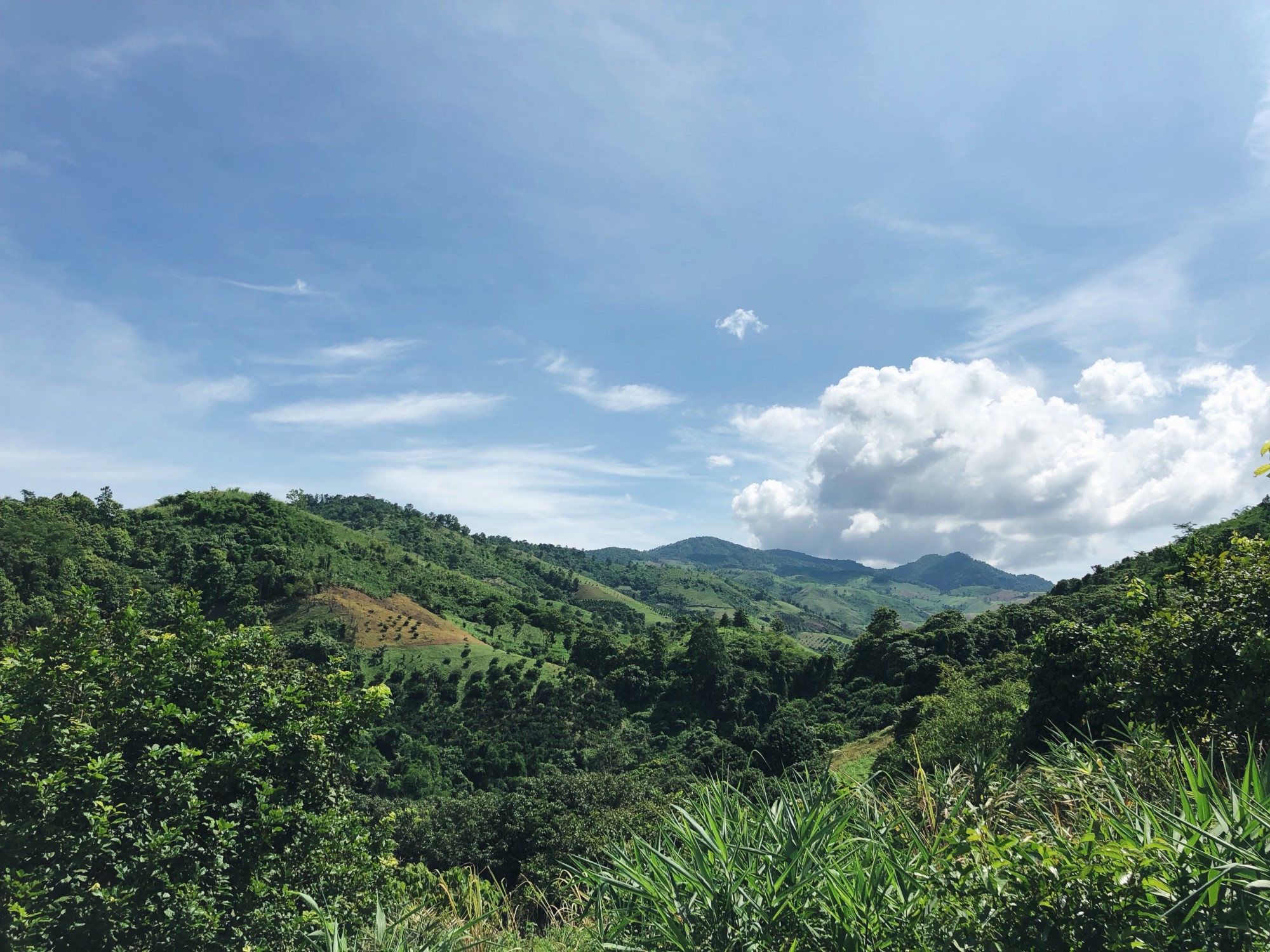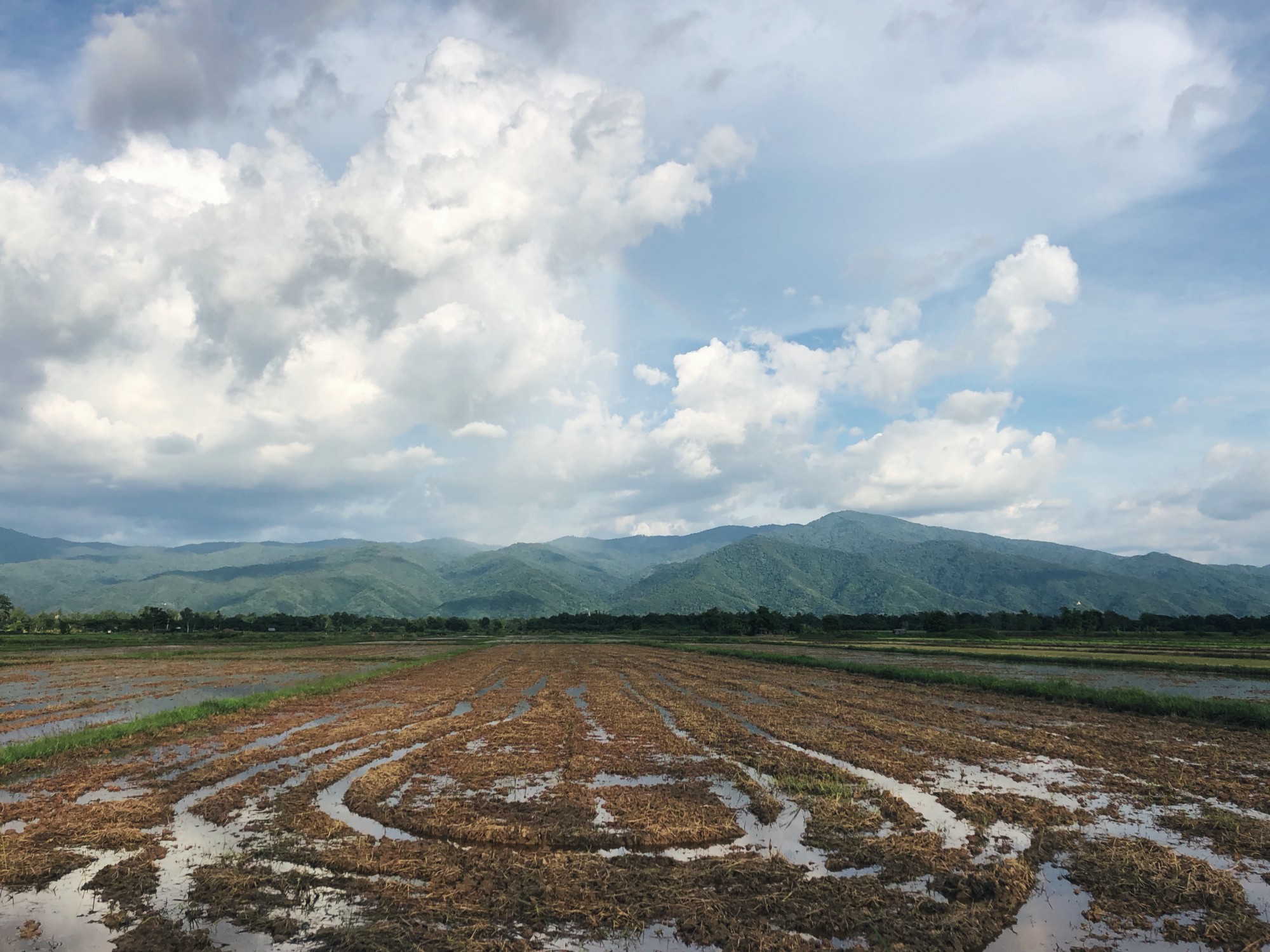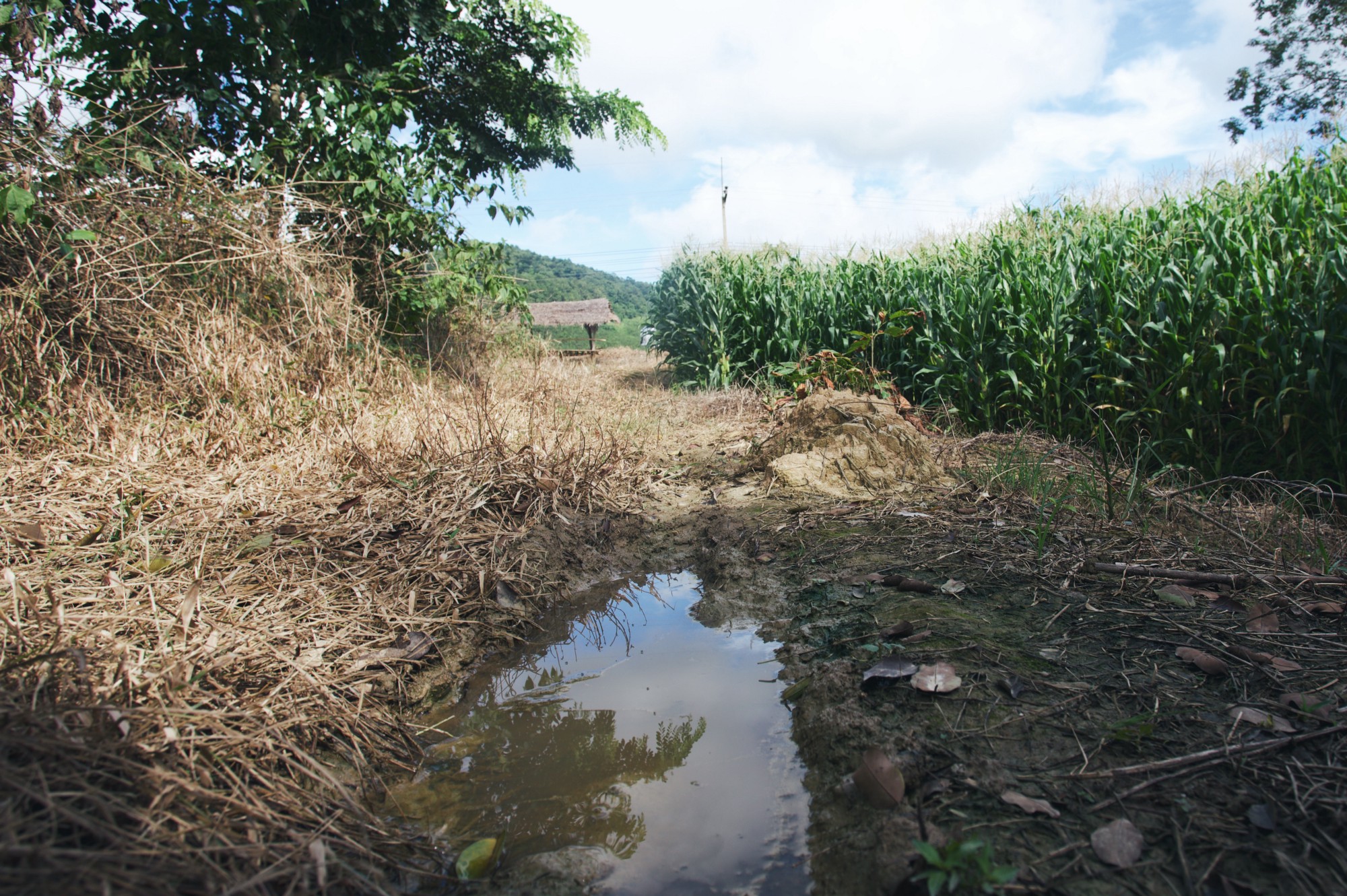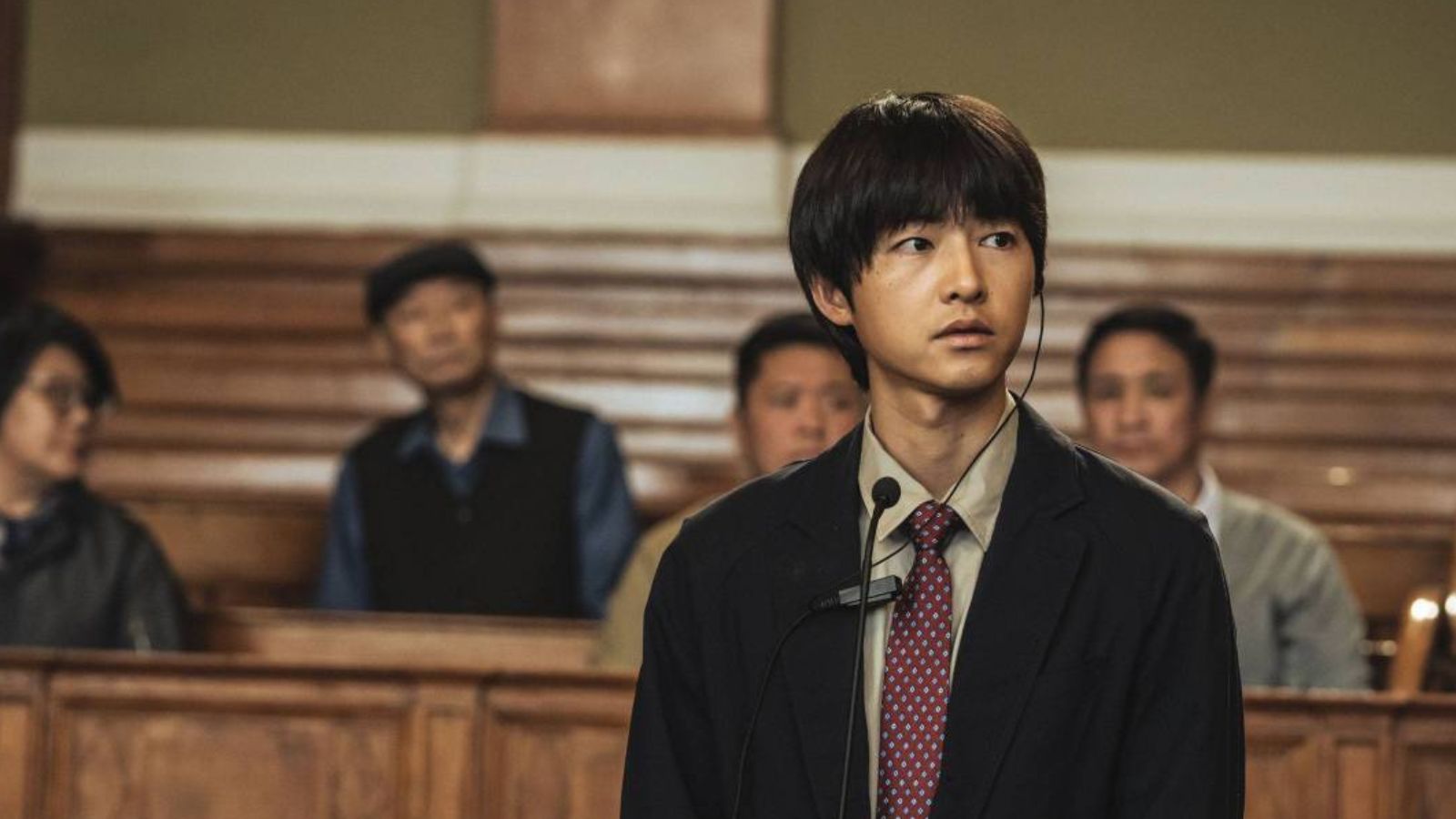Finally Free
I went to Southeast Asia to see where LiNK’s Field Team rescues North Korean refugees. Here’s what I found…

Refugees must cross terrain like this to reach safety in Southeast Asia
We’re on a dirt road weaving around potholes.
On one side, the rice reaches to the horizon. On the other, corn stretches higher than the van.It feels like rural Iowa, but hotter and with palm trees.
The van lurches along, swaying back and forth with the ruts in the road. We’ve been driving for five hours through dense jungle and villages so small that you’d miss them if you blinked. It’s starting to seem like we’re in the middle of nowhere.
We finally coast to a stop and LiNK’s Field Manager points to a steep ravine.
“We’re here,” she says.

“We’ve rescued North Korean refugees right here,” she continues.
For the next hour we stop every couple hundred yards. She points to a field or a patch of trees and recounts stories.Stories of screeching to a stop, sliding open the door, and pulling North Korean refugees into the van.Stories of refugees so dehydrated they barely have the words to ask for water.
Stories of people collapsing in exhaustion, caked in mud and peppered with bruises from the long trek through the jungle.“What do refugees do once they’re in the van?” I ask.“Some start crying, the tears stream down their cheeks. They’re so overwhelmed that they finally made it. Others flash smiles in triumph, soaking in every second.”
I realize we’re not on just any dirt road.

This road meanders along the border. You can’t see the line but throw a stone in a certain direction and it’s likely to land in another country.For North Korean refugees this border means everything. Cross it, and they’re safe. The North Korean regime cannot have them arrested and forcibly returned.The danger is finally gone — evaporated in the sweltering heat and suffocating humidity of Southeast Asia.
For the first time in their entire lives: they are free.
It’s a week later and I’m sitting in an air-conditioned coffee shop that sells overpriced lattes.
I’m back in South Korea to interview a North Korean woman who reached freedom through LiNK’s rescue network.It took her four tries to make it to South Korea.She was arrested twice at the North Korean border and once in China. Each time the punishments seemed unimaginable, but they’re terrifyingly common.She recounts the horrific torture she endured for trying to escape. The way they slammed her head into a nail on the wall. The torment of witnessing cellmates whither away from starvation. The heartbreak of watching her 5-year old daughter being beaten in front of her.I’m trying hard to collect the facts. But hers is one of those stories that hollows you out. Leaving you nauseous and numb.The conversation dwindles. I can see the toll that sharing these stories are having. Her shoulders start to slump. She barely looks up to make eye contact anymore.I pull out my phone and show her a video. Her eyes flash with life.

20 seconds pass and she’s still glued to the phone.
It’s a video of that dirt road. And the exact place where she finally reached freedom. There are corn stalks on the left and a small farmhouse hidden behind palms leaves on the right.“Do you remember this place?” I ask.“How could I ever forget it?” she says without looking up.She’s smiling for the first time all afternoon.
My Name Is Loh Kiwan | Fictional Story, Real Lives
From a crumpled piece of paper, he copies his name onto the Application for Recognition of Refugee status. The letters flow together in neat, sloping script to spell–Loh Kiwan.
This seemingly mundane declaration of identity serves as the focal point of Netflix’s recently released movie, My Name is Loh Kiwan. Showcasing the titular character’s past and present struggles as a North Korean defector seeking asylum in Belgium, the film follows Kiwan’s journey through both hope and heartbreak while he fights for a new life in freedom. He shows unimaginable resilience in the face of tragedy, betrayal, and bureaucratic apathy, carving out a place where he can live as himself, for himself.

Though based on a fictional novel, Loh Kiwan’s story captures the real life experiences of many North Korean refugees. Whether it be the harrowing circumstances of his escape, the subsequent challenges Kiwan faces while applying for asylum, or even the emotional turmoil of contending with his trauma, My Name is Loh Kiwan derives its drama from reality when depicting the struggles of North Korean defectors.
Uprooted by an act of defiance that saves his friend’s life, Kiwan and his mother escape across the border to China and live there under constant threat of arrest and forced repatriation. With no legal status as refugees and no legal options for leaving the country without government approval, North Korean defectors in China are exceptionally vulnerable to trafficking and exploitation. They live in the shadows, concealing their identities as best they can, despite cultural and language barriers. If captured and returned to their home country, they are subject to brutal torture, imprisonment, and execution. Rather than face such inhumanity, many see suicide as a final escape and carry poison or razor blades with them, much like Kiwan and his mother.
It is ultimately his mother’s sacrifice that saves Kiwan from such a fate. Her death forces him into a position nearly every North Korean refugee recognizes–having to leave behind friends, family, and loved ones with aborted goodbyes for the sake of everyone’s safety and survival. Kiwan’s only material connection to his mother is a photo and a wallet full of blood. In reality, most leave with even less than that.
Not wanting to incriminate the people close to them if they are caught trying to escape, most North Korean refugees forgo any identifying documents or proof of their existence. They take only the bare essentials for survival, not knowing that their arrival in a new country is only the beginning of their journey, or even if they'll make it.
But this is not the narrative Liberty in North Korea believes in. No North Korean person should have to endure the struggles or celebrate the successes of resettlement alone. Much like the assistance Kiwan later receives from an advocacy group that offers legal support and a community of other North Koreans, LiNK walks with our North Korean friends on their journey to freedom. And when they begin new lives, we support their success, amplify their voices, cultivate more leaders and changemakers working on this issue together.
In this, Kiwan’s story reflects yet another reality of the North Korean people. Not only do they encounter extraordinary hardships, but also, they face them with extraordinary strength. Throughout the film, Kiwan persists in his pursuit of an earnest, honest life. Despite setbacks and situations where he’s forced into hurt or hiding, he stays true to his mother’s wish for him to live well, and in doing so, inspires the people around him to do the same.

He finds hope, love, and freedom in others, but most importantly, in himself. When placed on trial to prove his identity before the court, Loh Kiwan proclaims the name his mother gave him.
Owning one’s identity as a North Korean person is not always easy. From the start of their escape, they are forced to hide. Once they reach freedom, the stigma and prejudice people hold towards their homeland pressures many to erase their accent or change their name–sometimes as a form of self-protection, other times as a way to fit in.
What Kiwan’s story shows, however, is that there is hope at the end of hiding. There is beauty in the simple, everyday life he longs for–a life where he can work for himself and share meals with friends, have a home, have a future, and have the choice to stay or go.

This is the life the North Korean people deserve, and every day, both within the country and without, they fight towards a better future. Their courage and indomitable spirit are not just figments of fiction. With your help, their freedom will become a reality.
Sign up below to learn how YOU can help support North Korean refugees today.




